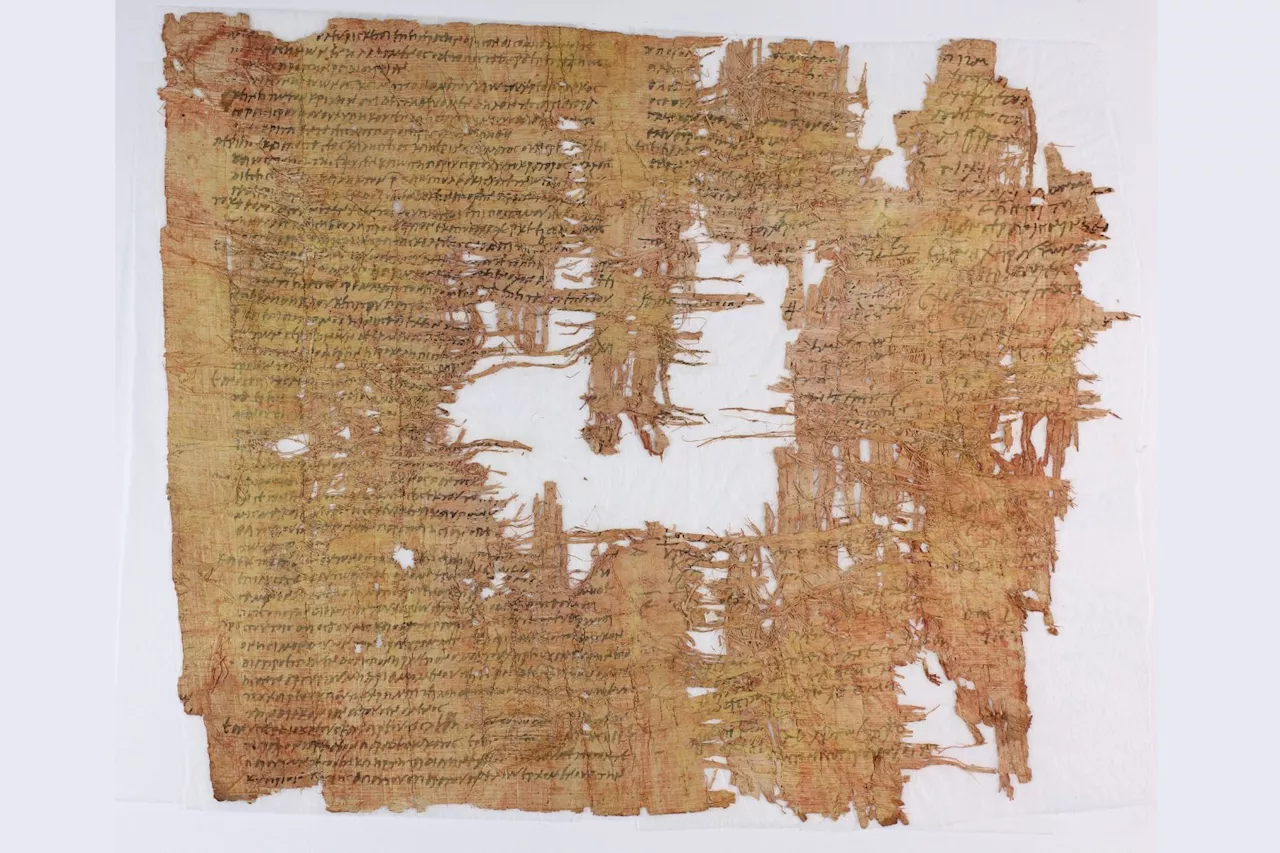A newly translated papyrus from the Judaean Desert sheds light on a Roman trial for tax fraud, forgery, and alleged rebellion, offering insights into the volatile political climate in ancient Judaea.
In 2014, a researcher made a startling discovery: the longest Greek papyrus ever found in the Judaea n Desert wasn't what it seemed. Hidden in plain sight, misidentified, and nearly forgotten, the papyrus was rediscovered by Hannah Cotton Paltiel of the Hebrew University of Jerusalem. Now, Paltiel and her colleagues have translated the text, revealing it to be prosecutors’ notes for an ancient Roman trial from the early second century CE.
The artifact provides a unique window into a case that dealt with tax fraud, forgery, and the fraudulent sale and freeing of enslaved people during a period of heightened tension in the Roman province of Judaea. The papyrus, named “P. Cotton” in honor of Paltiel’s remarkable find, offers unprecedented detail about the workings of a Roman court in this region. It includes over 133 lines of text, comprising prosecutors’ notes for the trial before Roman officials and a transcript of the subsequent judicial hearing. The notes reveal fascinating insights into the legal process, with prosecutors' comments on the strength of specific evidence and strategies for countering potential rebuttals. Though the identities of the prosecutors remain unknown, researchers believe they were likely functionaries of the Roman fiscal administration.The primary defendants were two men named Saulos and Gadalias, both accused of corruption. Saulos was charged with orchestrating the fake sale and emancipation of enslaved people, evading the payment of necessary taxes. His collaborator, Gadalias, was the son of a notary with a history of violence, counterfeiting, extortion, and inciting rebellion. Both men faced accusations of forging documents. Under Roman law, forgery and tax fraud carried severe penalties, including hard labor or even capital punishment.Adding another layer of intrigue, Saulos and Gadalias were also accused of participating in rebellious activities during Emperor Hadrian's visit to Judaea, which took place around 129 CE. Remarkably, the judicial hearing took place on the eve of the Bar Kokhba revolt (132 to 136 CE), a major Jewish uprising against Roman rule in Judaea. The text even mentions Tineius Rufus, who governed Judaea at the start of the Bar Kokhba revolt. This connection to a pivotal moment in Roman-Jewish relations raises important questions about the defendants' involvement in the brewing rebellion. While their ultimate fate remains unknown, the P. Cotton papyrus offers a rare glimpse into the legal proceedings of the Greek-speaking Roman Near East. It captures a period of intense societal upheaval, marked by simmering rebellion and enduring resentment towards taxation.
Ancient Roman Law Roman Empire Judaea Bar Kokhba Revolt Tax Fraud Forgery Slavery Greek Papyrus
United States Latest News, United States Headlines
Similar News:You can also read news stories similar to this one that we have collected from other news sources.
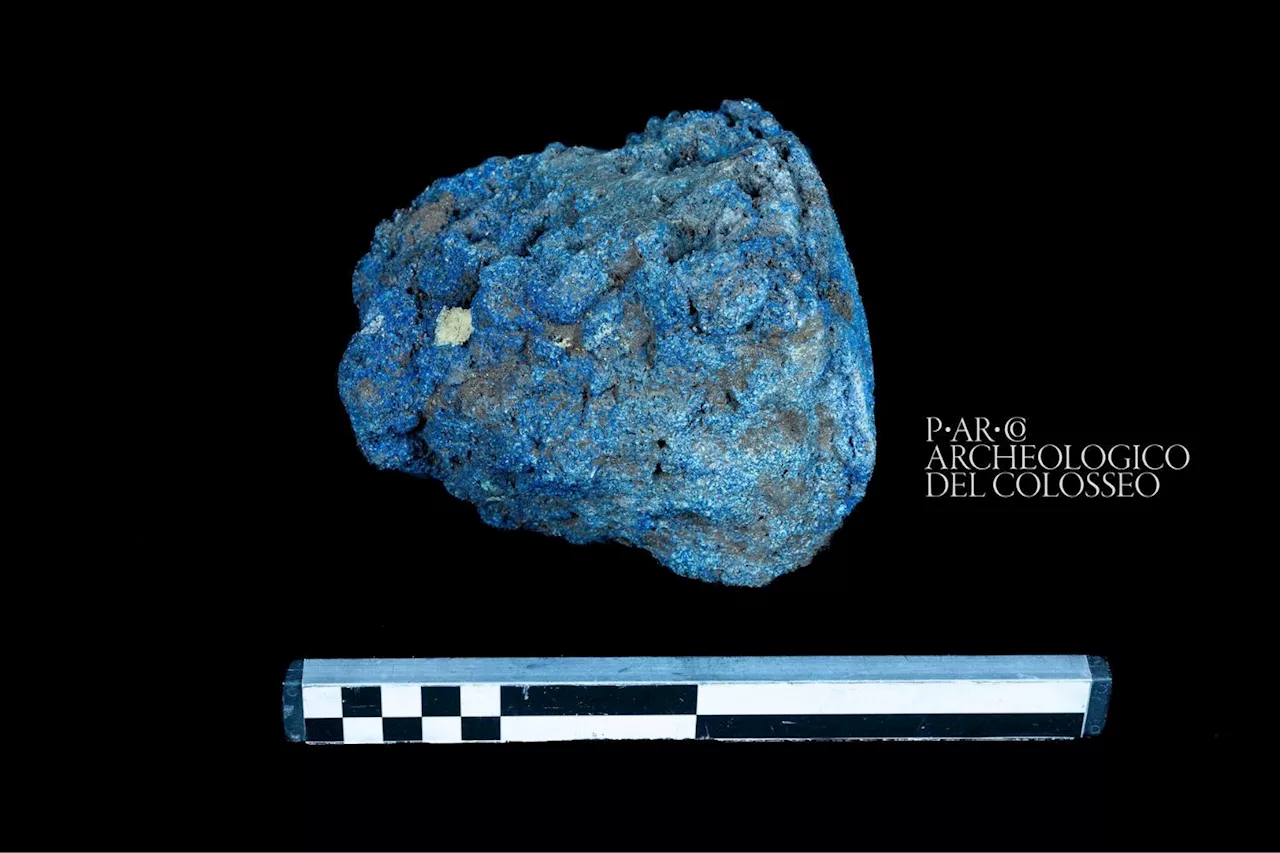 Ancient Roman Pigment Discovery Sheds Light on Imperial DecorationArchaeologists excavating Emperor Nero's Domus Aurea in Rome have unearthed containers with pigments used to decorate the imperial residence 2,000 years ago. Among the finds, a rare 5.29-pound ingot of Egyptian blue pigment, one of the oldest synthetic pigments known, stands out.
Ancient Roman Pigment Discovery Sheds Light on Imperial DecorationArchaeologists excavating Emperor Nero's Domus Aurea in Rome have unearthed containers with pigments used to decorate the imperial residence 2,000 years ago. Among the finds, a rare 5.29-pound ingot of Egyptian blue pigment, one of the oldest synthetic pigments known, stands out.
Read more »
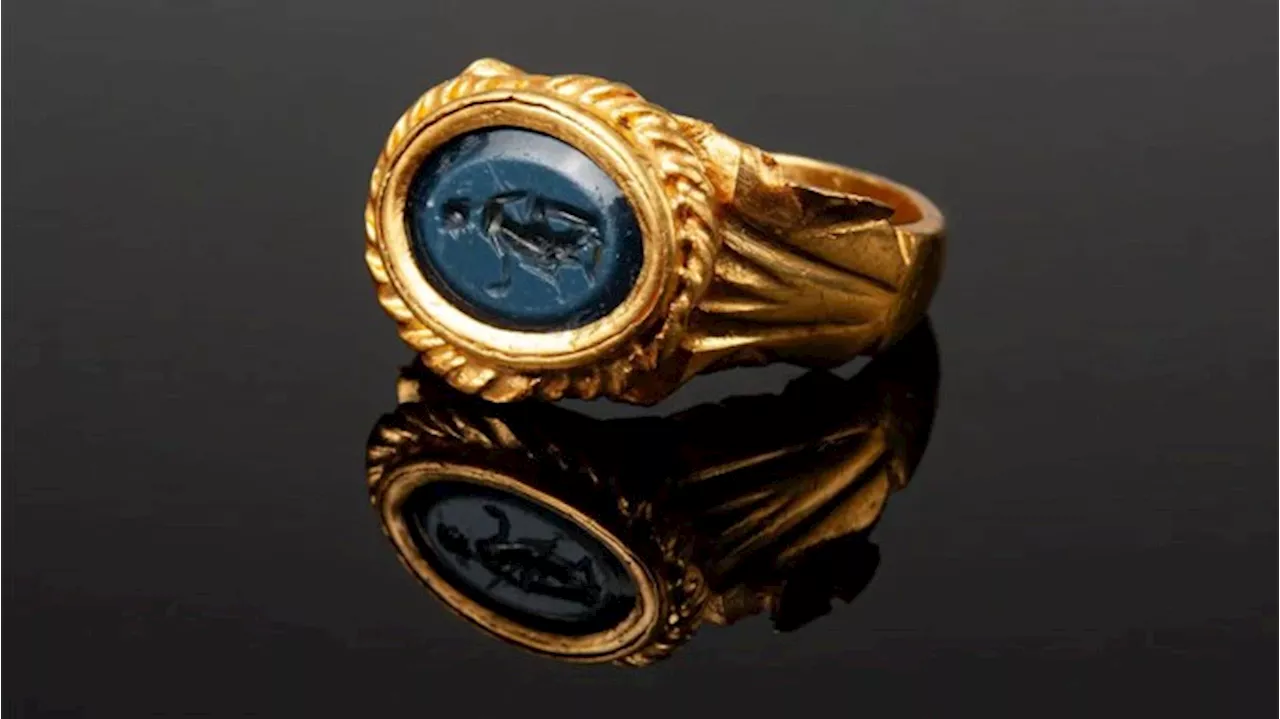 Centuries-Old Artifacts and an Ancient Roman Road Are Discovered in FranceFrench archaeologists unearthed artifacts and an ancient Roman road in Pacé, Brittany; including a ring that would have belonged to Roman elites.
Centuries-Old Artifacts and an Ancient Roman Road Are Discovered in FranceFrench archaeologists unearthed artifacts and an ancient Roman road in Pacé, Brittany; including a ring that would have belonged to Roman elites.
Read more »
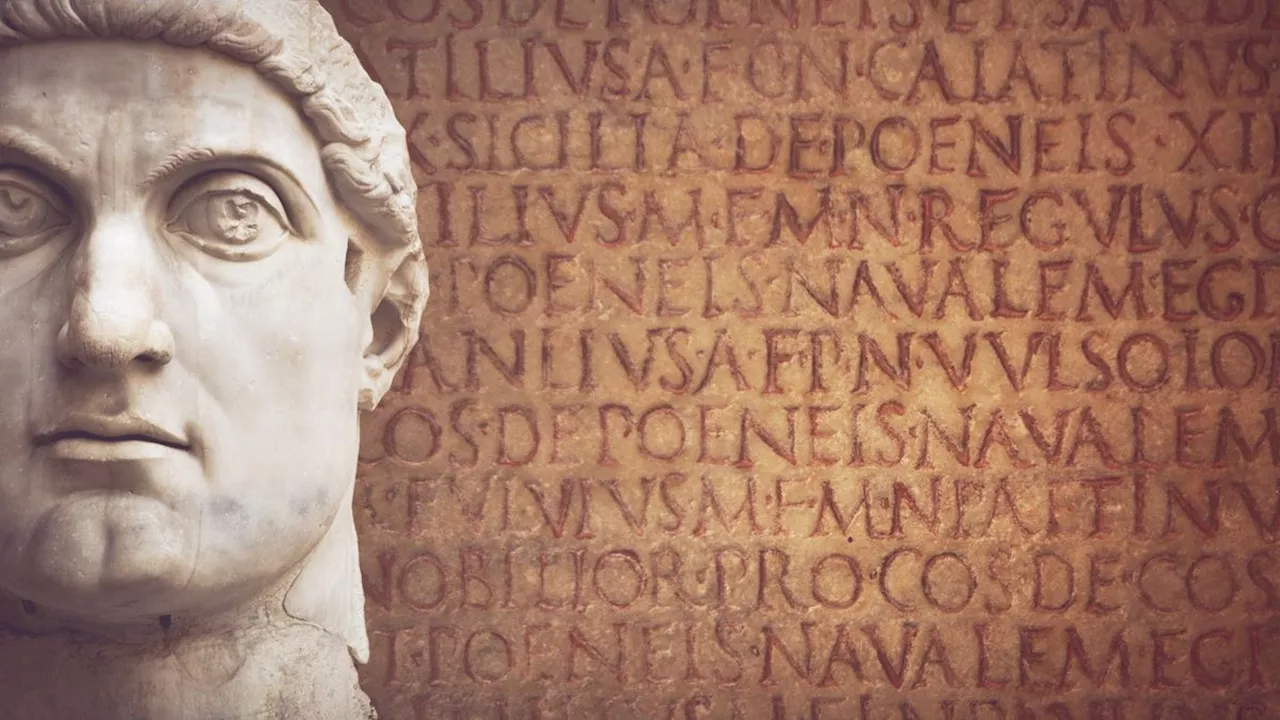 Roman emperor quiz: Test your knowledge on the rulers of the ancient empireTom Metcalfe is a freelance journalist and regular Live Science contributor who is based in London in the United Kingdom. Tom writes mainly about science, space, archaeology, the Earth and the oceans. He has also written for the BBC, NBC News, National Geographic, Scientific American, Air & Space, and many others.
Roman emperor quiz: Test your knowledge on the rulers of the ancient empireTom Metcalfe is a freelance journalist and regular Live Science contributor who is based in London in the United Kingdom. Tom writes mainly about science, space, archaeology, the Earth and the oceans. He has also written for the BBC, NBC News, National Geographic, Scientific American, Air & Space, and many others.
Read more »
 Ancient Roman Lead Pollution Dropped IQs, Researchers SayNew research reveals that lead pollution from ancient Roman silver smelters likely caused a significant drop in average IQ among the population. The study, using ice cores from Greenland as a historical record, highlights the widespread impact of industrial pollution even 2,000 years ago.
Ancient Roman Lead Pollution Dropped IQs, Researchers SayNew research reveals that lead pollution from ancient Roman silver smelters likely caused a significant drop in average IQ among the population. The study, using ice cores from Greenland as a historical record, highlights the widespread impact of industrial pollution even 2,000 years ago.
Read more »
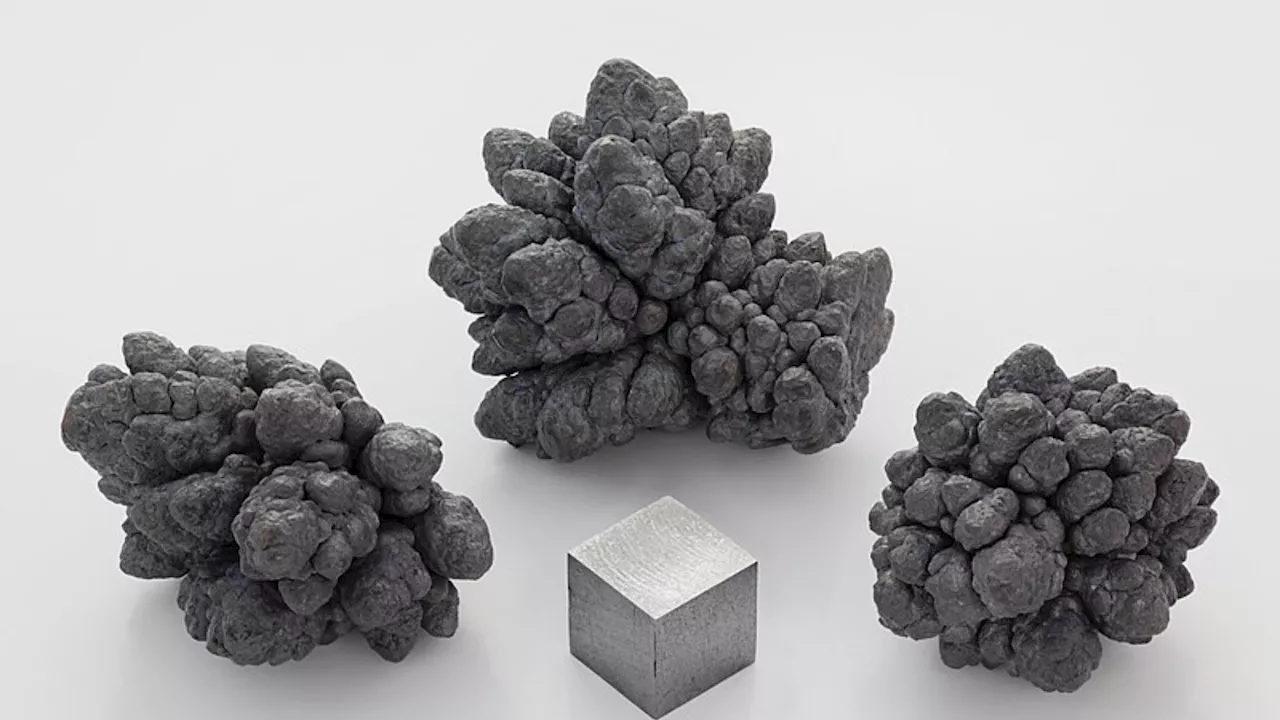 Lead Pollution Linked to IQ Decline in Ancient Roman EmpireA new study using Arctic ice core records reveals a correlation between lead pollution during the rise of the Roman Empire and widespread health decline. The research suggests that lead released from mining activities lowered the IQs of an estimated 80 million people.
Lead Pollution Linked to IQ Decline in Ancient Roman EmpireA new study using Arctic ice core records reveals a correlation between lead pollution during the rise of the Roman Empire and widespread health decline. The research suggests that lead released from mining activities lowered the IQs of an estimated 80 million people.
Read more »
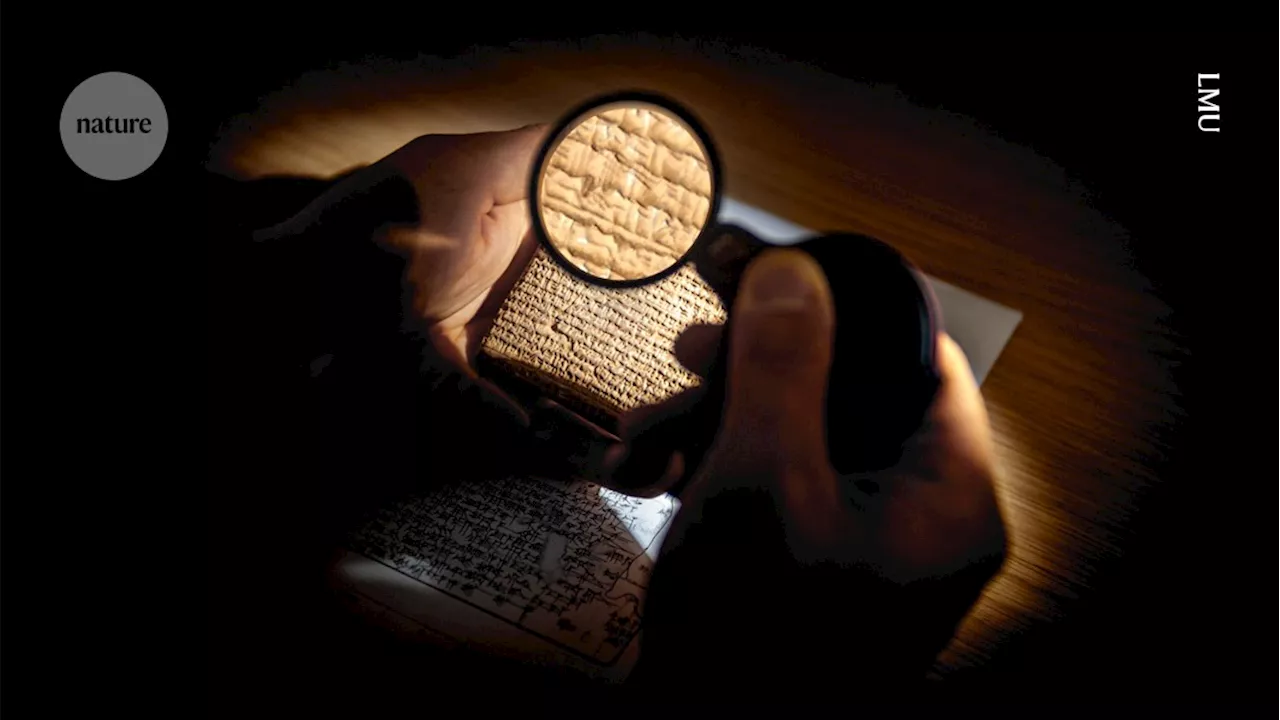 AI Unlocks Secrets of Ancient Roman ScrollsResearchers are using artificial intelligence (AI) to decipher burnt papyrus scrolls from the eruption of Mount Vesuvius in 79 AD, revealing previously inaccessible texts from Roman history.
AI Unlocks Secrets of Ancient Roman ScrollsResearchers are using artificial intelligence (AI) to decipher burnt papyrus scrolls from the eruption of Mount Vesuvius in 79 AD, revealing previously inaccessible texts from Roman history.
Read more »
